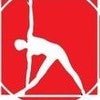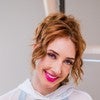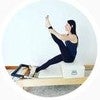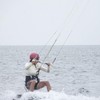Description
About This Video
Transcript
Read Full Transcript
Chapter 1
Getting Started in Pilates
I'm Debra Cole away. I live in Boulder, Colorado and I've been teaching Pilati since 1985. Well, in, in retrospect, I do actually believe that my first experience was Pele's was probably the floor work of the dance classes. I took every day at the Nikolai Lewis School in New York and I had honey home as a teacher once a week. So I didn't know at the time, but looking back, I'm pretty clear that there was a, a big [inaudible] influence in there that I didn't know about. Yeah. So then technically though, my first experience with [inaudible] was, uh, after I left New York, I had gotten into a dance company in Boulder, Colorado and moved in 1982 I was working a lot of different jobs, wasn't making money as a dancer, but, um, I was working in a gym teaching aerobics. So now push ahead. It's 1985. And uh, the owner of the gym came up to me one day and just said, I know this guy, he teaches this stuff that I think you might like because you're a dancer. And I said, what's this stuff?
I asked him about his friend and his friend was Stephen Frees, who had actually lived in boulder as a younger man. His name was Steve, and he had a wife and a son. He was divorced and at some point, I don't know the story about this, but he had moved to Beverly Hills and he had started doing [inaudible]. I don't really have all the facts, but I think it was, I think he originally trained with Ron Fletcher, but pretty soon left and started doing his own thing. It's, it's The Times. It's Richard Simmons. It's Jane Fonda. It's, you know, all the celebs. And he a, when I met him, he had the stuff in studio in Beverly Hills and I convinced Dr Ferintino, so it was the owner of the gym to invite and out and I to find out if he would train me. I just said, do you think he would train me to teach [inaudible] and Dr Farron Tinos considered it. Uh, he invited Stephanie out. He didn't want him to just teach me. He wanted, uh, Stephan to teach the entire aerobic staff.
I didn't want that, but I had no say in it. So, but when Stefan came out, he met me, he agreed to teach me. And another young woman named Alison, I don't remember her last name. And so, uh, they opened up on the second floor of the gym, was a beautiful little spot overlooking the foothills. We had 10 reformers and for one month Alison and I had lessons with Steph and every morning we variously wrote down as much as we could remember. And then in the afternoons we worked by ourselves and after about a month we opened up the studio and the public came to try it.
And also because Stephen was such an amazingly charismatic character, well my first training was just this month. And even I was pretty cocky and thought it was pretty good. I was aware that I certainly needed a lot more training. I think I came across the Phillip Friedman, Gail Isen book. The plot is method for physical and mental conditioning. I found it in a used bookstore and that opened my eyes up to the fact that there was actually something else. There was the mat.
And there was this place in New York City with these pictures. So I got curious. Stephan had to leave boulder and go back to his, his business and Beverly Hills and truth be told, Alison and I were not as appealing of teachers to the female population who were coming in. You know, we were, we were cute, but we weren't Stephan. And, uh, the business didn't actually do that well. And Dr Faron t was trying to, you know, make good on his investment. He had bought 10 reformers. So he, he opened it up to the gym members. He started making plans to just let people come up and use the equipment. And even then I thought, hmm, that isn't a very good idea. And I started to balk at that. It's a bit of a long story, which I won't go into right now, but one thing led to another and I got fired.
I'm in the process, uh, leading up to that, he had decided to sell some of the reformers. And so I called my mom and I said, mom, you want to go into business with me? And she said, of course, honey, you know, so the, uh, what I remember is that the, they were $1,500 new, those reformers and Dr [inaudible] was selling them for 1200 each. So my mother sent me a check for $2,400 and I marched into the office and I said, I want to buy two of these reformers. And he looked at the check and he said, they're 1500. And I said, no, you said 12. So anyway, he said, all right, and you're fired and don't bother coming back to teacher aerobics classes either. So, uh, I got his son to load up the reformers in his pickup truck and take them to my house. I put him in the back bedroom. I sat at the kitchen table for a few days and thought that, what do I do?
You know, seriously, what am I going to do? Uh, what I can't remember honestly is how I knew of Romana at this moment, but I don't know. But I knew I needed more training. So after a couple of days of just sitting there at the kitchen table, my phone actually did start to ring and I got, uh, I got clients and interesting, one of my first clients was pat guidance, ex-husband's new girlfriend who had, uh, horses. And she came to do Claudias with me as a horse woman. And really for the first several weeks or maybe month or so, all my clients were these women, Horse, horse women. So that, that's how the whole thing got started. And, uh, I went to New York, I just, I can't remember how the whole thing all happen, but I did, I went to New York and in the fall of 85 and I spent a week at Ramana studio. She was amazing to me. She taught me, she invited me into the back room.
She told me wonderful stories, et Cetera, et cetera. I remember, actually, I don't know, uh, well I just remember lying there on the mat being sidekicks one day and Shari was teaching me, so I would never remember me probably in a million years. But, um, I hear this voice from the other side of the studio.
Um, I went, uh, again, I just don't remember how this all happened, but I ended up in La. I know I went to Jillian hustles studio and took some lessons with her. I went to the Corolla workshop, I got to train with marine shells. They bloom and Quentin Josephy. I went to there, I went to run Fletcher's studio for a couple of days, you know, and then, uh, one thing led to another. I wrote a letter to Ramana.
At this point, I, I believe I wrote the letter in 87 and I did admit to her that I had been teaching, I reminded her that she had encouraged me to come back to New York and I asked her, how can I proceed with my training? What is there available? I t you know, so naive at the time, you know, thinking, well, there were no training programs, but it was very clear to me that this was important. I needed to have some kind of credibility. And also I could tell already that police was becoming more popular. People were, you know, taking little bits of it and changing it, et Cetera, et cetera.
So I wrote her this letter asking her if she would consider taking me on as a student, what was available, were there training programs? How did I go about doing this? Could I come there? And that letter got returned to me. It never made it to her. And so I just kind of shelved it. And then the next thing I remember is knowing about the, um, the conference at St Francis Memorial Hospital, which was in 1988.
And I had torn my ACL in 87 skiing and I'm sure that somehow I knew about this because I had heard of James Garrick and he was the orthopedic surgeon who was responsible for opening the PT part of St Francis. And then Patrice Whiteside and Elizabeth Larkam came in with dance medicine aspect and Dr Garrick gave the blessing to have the dance medicine part, you know, right there coexisting with the PT part. And I imagined that what happened was they did kind of a grand opening for this and had it be an invitation to [inaudible] teachers to come. And that's where I met eat. So how, what I remember very specifically was eve was working with Marianna Ama, Carella I little scoliosis. She had her on her side and she was teaching her side in printing sidelining in printing, little tiny little tiny Marianna.
And I just remember she put her hands on her and I spoke not much and I saw the whole thing just kind of come into focus and in that moment I just thought, what is that I need? I need to be able to do that. I know I'm a pretty good teacher already, but I need to be able to do that. I wrote a letter to even biting her to please come to boulder and do a workshop for me, for my students in any of the other [inaudible] instructors that were now in boulder. And she wrote me back and said that she didn't feel well enough to come. So this was 88 maybe the beginning of 1989 and but she would send her lovely assistant, Michelle Larson in her place. Would I be okay with that? I said yes.
Michelle came and it was fabulous. She, she did. I had a studio in my home, different home, but studio in my home at that point. So I, I, I got Michelle lined up with a lot of private lessons, all my friends and also we did a workshop at up Yoga Studio and I was equally as impressed with Shelley. What they had was this thing that didn't follow a form. You know, people would come in and they'd say, I have this, I have this, I have this. And they'd start, they would just start somewhere, okay, try this, try this, try this. No, do this. Never once did they say no, no, not like that, you know, or correct. There was no correcting and how to do anything.
They just led these people through this seemingly seamless sequence of events and every single one of them left proclaiming that they felt better and that whatever the thing that they had come in, their complaint that they came in with had been at least somewhat abated. And I, again, I just thought, how did they do that? How, where are they looking at? What are they seeing? What is guiding them to do what they do? And I, I just wanted it. So after Michelle went home, it took me a while to get up the courage, but I wrote again to eve and I asked if they would take me on is um, if she would take me on as her apprentice and you know, leave boulder if she would and just go to Santa Fe sometimes.
Chapter 2
Working with Eve
She taught me [inaudible] Palase and she was very clear when it was straight [inaudible] and we had plans. She, she would, she was trying really hard to keep it organized and keep it straight even on some days she wasn't doing that well.
I had different kinds of lessons with eve than I did with Michelle. And I also observed, I observed them teach all the time. And so when I observed eve teach, she wanted me to take notes for her and she wanted me to try to learn the lob on notation, but I couldn't, it was too hard. So I didn't, but I would sit in my little chair or with my feet on my little footstool so that I was totally upright the whole time. And with Michelle, I think we did a lot of problem solving case studies. She had her clients and I would watch her teach her clients and then we would discuss it. And with Eve, uh, she went over a lot of material. I think she really thought I was down there to learn [inaudible] so she felt like it was her sponsor ability to, to teach me polities what I was really down there for was to figure out what the heck it was that they did this magic stuff that they did. And so little by little, you know, that came out because I would watch her teach and then I would ask for a lot of questions. Well, why did you do that? Why did you do that? How did you know?
She started letting me teach her clients sometimes too, and then we would have these amazing, um, just theory meetings. And I spent a lot of time by myself rolling around on the floor trying to figure it out, which was really priceless. When Eve told me that I was going to teach some of her clients, I was terrified because I knew that I couldn't just rely on my [inaudible] training and the order and the exercises anymore. I was trying to start to understand what they were up to and what they did. And, and it was, it was really scary because it felt so groundless, you know?
So I would put people on the reformer and I did get them through footwork and hundred and short spine and things like that. But I was trying to develop this other capacity to just watch the body, look at the breath moving, see what, what's moving, what's not moving. And she didn't give me any really difficult people. Eve was incredibly supportive and encouraging, um, of me and everybody that came in there, she, she wanted us to love what we did. She, she, she would always say, you know, what are you doing? Do you love what you're doing?
And she very much insisted that we didn't just teach a bunch of exercises. She has a couple of famous quotes, you know, that other people may have mentioned, but you know, she always said, are you a teacher? Are you a conveyor belt? That's the one that you know, meaning do you just go by, do you just go by the book? Do you know or are you actually trying to educate your students? You're actually trying to teach them about themselves. And the other thing that she always said was, uh, we don't teach exercises, we teach concepts. And I struggled with that one for a long time, know, I was like, well, what do you need? Obviously we're teaching exercises.
And then over the years it became clear to me that the exercises is the opportunity, the movement patterns or just the opportunity to impart a certain kind of capacity or feeling or awareness into the body. When she spoke about concepts versus exercises, the concepts were what you were educating people about. The idea about breath, about release, about balance. And because if you can't do said exercise, you're not screwed. You know? It's like if you're working with the concept, then you make something up so that they can be beginning to get balance, release circulation, breath back into their body, back into their life, regardless of whether they can actually do any kind of set, um, prescribed series of exercises. One of the main teachings that I got from Eve was that you can do something with anybody. So, you know, by the time I was there, again, like I said, she wasn't, she wasn't really teaching [inaudible] anymore.
She had, she didn't really have that many clients either. And one of the reasons she didn't in a way was because she wouldn't just teach a bunch of exercises. And if she didn't like the way that your breath was moving through your body, you didn't get to do much more than just lie there and, and breathe. And if people had this idea as plays was becoming more popular, you know, that they were gonna come in for a workout. And that wasn't what ended up happening. So, but, um, but she did have some amazing people. She had a young man in a wheelchair that I remember, um, he was a quadriplegic and somehow managed to get him up those stairs into that little studio and on the floor.
And then she would just work with him and get him, get him moving. It was a beautiful thing. And that was the message that I got. Everybody, you, you can meet everybody right where they are and you can do something, you can do something. I had a personal relationship with eve in the sense that we spent time together other than just the lesson time, the well and the theory meetings. I mean, I would go over to the house, the dog and uh, and spend some time with her. You know, I respected her frailty though at time. She was great. I mean, there, there are things, you know, there are things that I was very impressionable. Uh, I remember, uh, I remember watching her be frustrated with how old she was. I remember, I remember watching her, you know, so funny because Suzanne mentions that Suzanne Gutterson mentions that she's very neat and she certainly was. And a, uh, almost like obsessive. And I wondered at the time like, she is this, she needs, she's anxious and she needs to have everything. You know, I was 30 or something, you know, I was like, now I understand better, but you know, it was, I learned things from eve that weren't just, you know, as a pallet's teacher or as a a gentry technique teacher.
I watched her try to teach me some of the [inaudible] exercises and get really frustrated and angry with herself because she couldn't do them anymore. And I remember thinking, Oh my God, woman, you're so amazing. Why do you still care about this? And then thinking, well, Deborah, take this in, you know, it's like, when do you, when do you just let go? When do you let yourself just be who you are? I have taken over the years since, you know, since I'm no longer since she died. And of course, since I don't haven't spent time with her, uh, again, is, you know, you, you learn things and then you develop yourself.
And sometimes that line is a little blurred because certainly I've gone on and developed myself and the work that I do beyond just exactly what I learned, she was very clear about pain and very clear that when there's pain, there's bracing. When there's bracing, there's a lack of circulation, a lack of fluidity, sort of like this self, you know, this spiral that happens. So that my, all, our main task with people who are in pain was to support them in moving again, which was exactly the thing that they didn't want to do because it hurt when they moved. So there was this whole thing around,
So this whole process of not just retraining somebody efficiency of movement, but, but helping them put a dent in that solidity with which they believe things are and forevermore and I can't change and all that kind of stuff, which of course has has impact. Well beyond just physical fitness.
Chapter 3
Eve's Greatest Gift to Debora
You've talked about Joe somewhat to me. Not a lot. She was very interested in me. She asked me a lot of questions about myself, my dancing, my boyfriends, you know, my life. Uh, and she wanted very much, I don't know, like for me to be very clear about what I was doing, happy with what I was doing on purpose about what I was doing.
She mentioned Joe, uh, in the way that I think a lot of that generation did in the sense of this is what Joe taught me. This is what I have made up. My favorite memory of eve is a time when, uh, I had one of my precious few lessons set up with her and I had injured my back. I [inaudible] the day came when it was time for me to go, you know, it was the day that I was gonna go have my lesson. I had my back was in spasm and I was furious with myself and I spent the whole day, let's say my lesson was two 30 in the afternoon or something. I thought I spent the whole day trying to work it out myself, work it out myself so that I could go in there and have the lesson that we had planned because we had our list. She tried to be really, you know, organized with me. And today I'm teaching Debra this, this, this, and this.
And I'm finally, I just gave up and I went in and I said, Eve, I'm really sorry. I've hurt my back. And she, she did the thing with me. She put me in the cradle, you know, she put me over the spine corrector, she's Daft, all the foam pillows all over me, my body. And she sat there next to me and she put her hands on me and she started to guide me through breathing exercises. And what happened was this, literally this wave my spine, she talked me into it. She talked me into this spinal wave motion that I literally could feel from the tip of my tail all the way out at the top of my head and lying there doing nothing. I felt this incredible energy releasing through my body and not random. It was just, it was, it was like being on the beach, you know, I mean like I could feel the whole thing.
And then little by little I could feel the pain of bait movement was going. I felt this incredible freedom. She had me do a couple of small things, roll me off that spine correctors did me up, I walked in and I was secured, you know, and the so in that in of itself was of course amazing. But the lesson for me, this maybe I would tell this maybe is something I would say to somebody who is going to go do Polonius for the don't, don't be, don't try to fix yourself so you can go do pilates or you know, whatever it is. Like.
So I had spent the whole day trying to ready myself for my lesson instead of showing up and letting her be with me, you know? And so that's really, that was a huge lesson for me and that's what I would wish. When people come to see me, they don't have to like fix themselves up to come be with me, just show up and we can always do something and we can always do something. The thing about the energy work. Um, I've been doing a lot of chicken and, and Ginger [inaudible] since my experiences the cancer. And, uh, I remember at one point during one of our times together, she said, Deborah, you know, come here, put your hand, put your hand here and here it was one of her clients, you know, and she's like, don't you feel that? Don't you feel that? And I was like, God, no, I don't feel it. I don't feel it. And you know, now I think back, I don't know. No, if she studied Jinshan, you know, or what, but man, she had it, she had that in her hands and she worked it on me that day. And now looking back, I get it. You know, I imagine that eve would like to be remembered as being, you know, really bright, Sharp, very intelligent, curious, curious about everything.
Not at all. I'm afraid to, you know, go out beyond your own boundaries and learn from other people. Even as an older age. And like that there was this joke when she was at theraband was just starting to become a thing and she had every single color in her studio box of every single color of the theraband. And she loved that stuff. You know, she just, uh, she was playful and creative and she would want to be remembered because it's true for just being willing to do it. It takes, you know, she, her commitment was so huge. Her vision was so huge. I felt very supported. Uh, once my brain shifted in again, uh, by having been you've student and the work that I had learned from her regarding my own recovery, I had a double mastectomy. Now one thing to be clear, uh, and Michelle talks about this too, in the 50s, if you had what they called a radical mastectomy and they took your pectoralis muscles as well. So not so the case with me.
You actually know what to do right now. And it just, it cut through my, it cut through my frustration. It cut through my, you know, self-pity really. Uh, and I had to laugh and I was like, okay, so if you were teaching you, would you be telling yourself to come on? Just, you know, get through it? No. So I laid there and I imprinted my spine and I imagined the movement and I imagined, not her, but if it was me with somebody else, that person holding the pole and me letting my weight relax down and just picture the movement. And, and then the thing that really was like a kick in the ass was how I had to realize in that moment, all these years, even though of course I, I knew better, but there was definitely this little part of me that's like, oh, there's all these cool, cool ways to work with people who need that. And I'm not them. But there I was, you know, so there was that way that all these years I had been able to kind of separate myself a little bit and then all of a sudden I couldn't separate myself anymore. And it was, it was the biggest gift. Right. It was the biggest gift.
And you know, again, I have to say, I wouldn't say my teaching has totally changed since then, but in a way, you know, it has, again, again, just deeper levels of that. I was one of those people who couldn't move and got to actually decide what I wanted to do with my mind and the whole thing.
Pilates Legacy Project: Discussions
Comments
You need to be a subscriber to post a comment.
Please Log In or Create an Account to start your free trial.
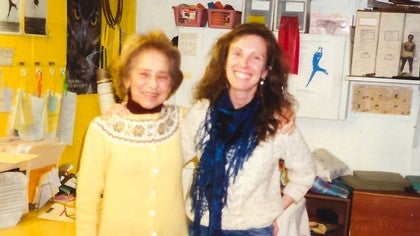
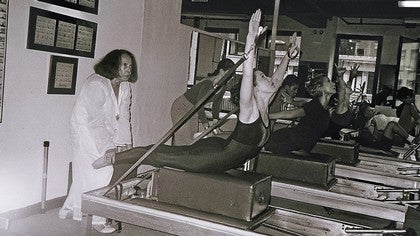
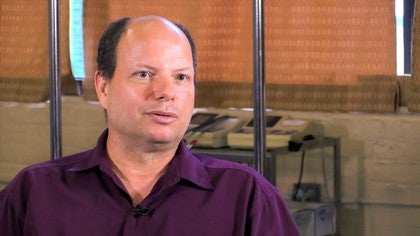













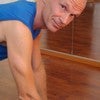

 !
!

